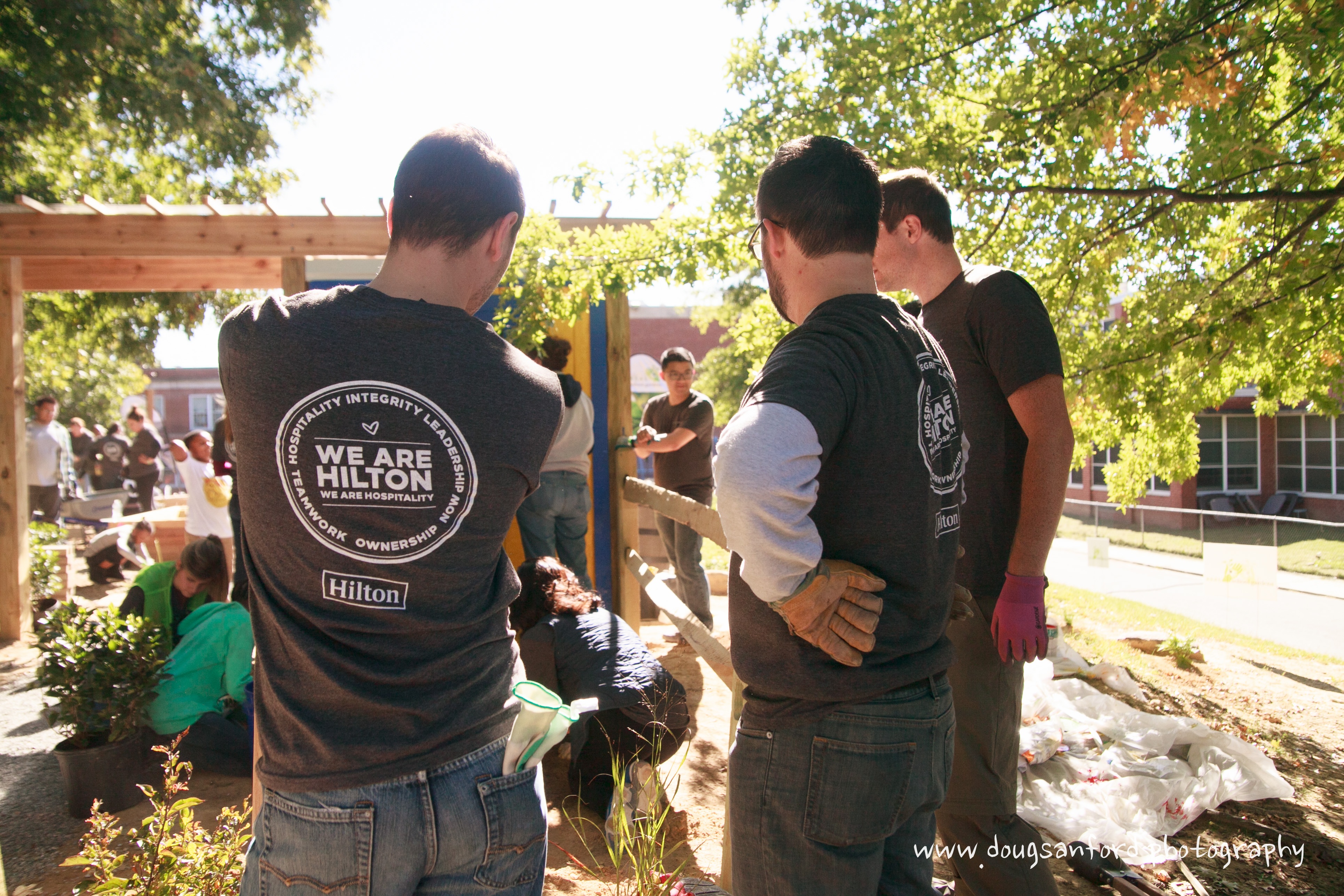To achieve key business goals and make a lasting impact on social and environmental issues, companies are investing in corporate citizenship efforts. The Boston College Center for Corporate Citizenship’s State of Corporate Citizenship 2017 finds that when companies commit to an activity—such as the development of environmentally friendly products—for more than four years, executives are much more likely to report success in meeting their goals.
For years, Hilton, a leading global hospitality company, has outlined aggressive sustainability goals to address an alarming statistic: Natural capital is used at an annual rate of 50 percent more than the earth can replenish it.[i] To meet these goals—which include reductions of energy use, carbon emissions, waste output, and water usage—Hilton made a significant, long-term investment in a proprietary corporate responsibility measurement platform, LightStay, to better understand how its hotels are minimizing their environmental impacts.
LightStay enables Hilton to track sustainability projects and initiatives at all of its hotels, and uses historical data to predict future energy usage levels as well as the impacts of performance on cost and annual consumption, incorporating variables like occupancy and weather. Since its launch in 2009, the platform has driven significant operational efficiencies for the company, saving Hilton an estimated $750 million cumulatively.
“Our environmental management strategy is based on actionable data and creating resources to support our global portfolio of hotels,” said Maxime Verstraete, vice president of corporate responsibility & ADA compliance at Hilton. “Through LightStay, we are able to manage our impact globally and provide customized solutions for our hotels to improve and optimize performance. With more than 4,800 hotels, our ability to make a positive impact on the environment, while managing our business, is massive.”
LightStay has allowed Hilton the ability to accurately measure and regularly assess its progress in meeting or exceeding its sustainability goals, which in most cases it has. Now, the company has upgraded the platform in an effort to increase impact with new environmental and social initiatives. These projects advance Hilton’s larger mission of using hospitality to make a lasting, positive impact on its Team Members, owners and communities they serve.
Following a comprehensive upgrade to this proprietary and state-of-the-art corporate responsibility measurement platform, Hilton’s portfolio of more than 4,800 properties around the world received ISO 50001 (energy management) certification. This certification complements the company’s other global systemwide ISO certifications, ISO 9001 and 14001, for quality and environmental management.
In 2015, Hilton partnered with the U.S. Department of Energy through the Better Buildings Challenge to meet a 20 percent energy savings goal in 10 years. Hilton has already achieved 4 percent energy savings across 90 million square feet of hotel space. In addition, Hilton became the first hospitality company to achieve Superior Energy Performance® (SEPTM) certification from the U.S. Department of Energy for leadership and improvement in energy management and productivity at three landmark hotels (Washington Hilton, Hilton Hawaiian Village Waikiki Beach Resort and Hilton Union Square San Francisco).
Most recently, Hilton launched a major expansion of the industry’s largest soap recycling program. To help communities in need: 1,370 hotels will now participate, including all 750 properties in its All Suites Brands. This program is now a brand standard for the company’s All Suites Brands and has already donated more than four million bars of soap.
Hilton has a vested interest in operating efficiently for its own business and that of its owners. Water, energy, food, commodities, waste requirements, and other factors significantly impact the economics of its business every day around the world.
[i] WWF, G. F. N., & GFN, E. (2012). Living planet report 2012: biodiversity, biocapacity and better choices. WWF, Switzerland.